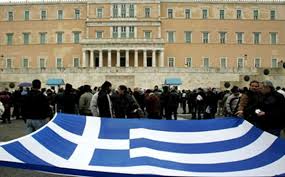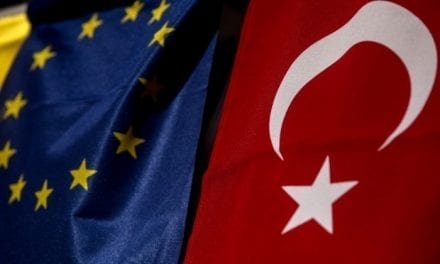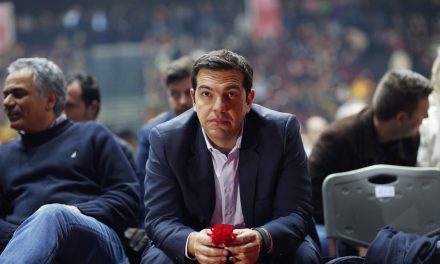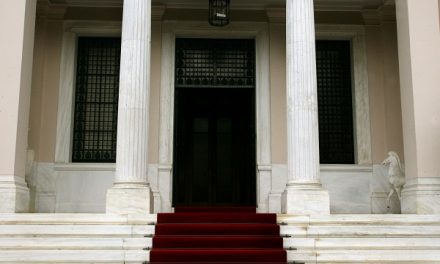By Christoph Dreier, World Socialist web site
On February 24, the German television channel Arte broadcast the documentary Unchecked Power: The Troika by Arpad Bondy and Harald Schumann. Two years ago, the pair won the German television prize for a documentary made in a similar format, entitled State Secrets: Bank Bailout.
Their latest documentary provides an effective account of how the “troika” (the European Union, the International Monetary Fund and the European Central Bank) oversaw a social catastrophe in Ireland, Portugal and Greece, while enriching speculators. However, a deeper understanding of the process is lacking.
The scale of the social crime depicted by the documentary stands in sharp contrast to the level of the political analysis the film provides. In essence, it promotes Syriza and the policies advanced by that party in last month’s Greek elections—policies that Syriza repudiated in its ignominious capitulation to the troika within a month of its election victory and assumption of political power.
The finance minister in the Syriza-led government, Yanis Varoufakis, provides the bulk of the commentary in the film. Ironically, the documentary was broadcast the same day that Varoufakis demonstrated the bankruptcy of his politics by submitting entirely to the demands of the troika and handing it his own list of austerity measures.
Ireland, Portugal and Greece were unable to finance their high levels of state debt after the financial crisis of 2008 and fell into insolvency. But a debt write-down for these countries was rejected, because it would have hit the private investors who had previously profited from the exorbitant interest rates they charged to lend money to the debt-ridden countries.
Instead, these countries received so-called “bailouts” from the European Union and International Monetary Fund (IMF) with which they paid their private creditors. As a condition for the funds, they were compelled to adopt brutal austerity policies. These, in turn, undermined the national economies, leading to a further rise in their foreign debts and the impoverishment of large sections of their populations. The austerity programs were drawn up and enforced by troika representatives.
Unchecked Power makes clear the social devastation that resulted. The program shows multiple sclerosis sufferers demonstrating before the Greek parliament because pension cuts had made it impossible for them to afford health insurance. As a result of the austerity program, today three million Greeks, around a quarter of the population, have no health insurance.
The troika insisted that spending on health could not rise above six percent of gross domestic product (GDP). This led to unprecedented cuts. Some 40 percent of hospitals were forced to close. Six thousand doctors at public clinics were laid off.
In total, the Greek budget was cut by a third in four years. Economic output declined by 26 percent. Bondy and Schumann show entire shopping precincts with closed shops, their former owners having lost everything.
Other countries were also devastated. In Ireland, public sector wages were cut by an average of 14 percent and the minimum wage by 12 percent. Portugal’s labour market was significantly deregulated. While 50 percent of employees were paid in accordance with collective agreements until 2008, today the figure is only six percent. Pay for young workers fell by 25 percent. Even academics are, in many cases, receiving only the minimum wage of €565 per month.
The film demonstrates, through interviews with former government ministers, that the troika stipulated the cuts down to the smallest detail and then enforced them. A former Greek labour minister, the social democrat Luka Katseli, who implemented a significant portion of the cuts, produces for the camera draft laws that were re-written entirely by the troika. The former minister for administrative reform Antonis Manitakis speaks of blackmail by troika representatives.
The EU and IMF were fully aware of the catastrophic consequences of their policies. Bondy and Schumann cite a report marked confidential that was sent by IMF representatives in Athens in March 2010 to the European directors on the IMF’s board. The report states that the EU austerity program, if implemented, “would cause a sharp contraction in domestic demand and a deep recession, which would severely burden the social structures.”
The film shows that the troika was concerned not simply with restructuring budgets, but literally with the plundering of the working class. Big companies and the rich were routinely excluded from the austerity measures and allowed to profit from the troika’s dictates.
Thus, the troika not only ordered the privatisation of state companies, property and infrastructure, but ensured that these assets were sold off at the lowest possible prices.
The film looks at the sale of a former airport in the Athens district of Elliniko. The six-kilometer-area near the city centre was sold for less than half of its estimated value of €1.3 billion to a firm owned by the private investor Spyro Latsis. After irregularities in the auction, he was the only bidder who emerged.
In Greece, the troika and government kept secret a list of over 2,000 possible tax evaders. The list had been given them in 2010 by then-French finance minister and now IMF Director Christine Lagarde. It is clear that the government and troika collaborated closely to protect the rich and powerful.
The arrogance and ruthlessness with which these class policies were imposed are illustrated in interviews with those responsible. The coordinator of the euro group, Thomas Wiese, declares with a broad grin that Greece’s political preferences had resulted in the rich on the Lagarde list not being pursued. This was because of the maturity of the political system and the conditions of the crisis, the Austrian said.
But the powerful impact of the pictures and interviews is clouded if not undermined by the political orientation of Unchecked Power.
Schumann’s central thesis is that the social attacks by the troika were merely the result of a lack of parliamentary oversight and a policy that had not been thought through. The film does not address the global economic crisis and avoids indicting the capitalist system itself.
This becomes clear when it presents a controlled bankruptcy of states like Greece as a better alternative. As if state bankruptcy would have improved the situation for workers!
Schumann, an Attac activist, presents a range of advocates of a demand-orientated financial policy, having them speak one after another. Although they criticise the troika’s policies, they advocate replacing them with other anti-working class measures.
Schumann allows the economics professor and New York Times columnist Paul Krugman to speak on the disadvantages of an austerity program, but remains silent on the fact that Krugman is a supporter of the cuts imposed by President Obama in the US. The US government has combined its social attacks with a policy of quantitative easing, i.e., printing money for the banks.
Paulo Nogueira Batista, Brazil’s representative on the directorate of the IMF, is another interviewee. He explains that a minority in the IMF did not want to give Greece any loans, on the grounds that they would not be repaid. He himself would have preferred a debt write-down. The film does not mention the fact that the IMF regularly combines debt forgiveness with drastic austerity programs.
The clearest indication of the bankruptcy of Schumann’s politics is the appearance of his key witness. At the beginning and the end of the film, he permits Varoufakis to speak.
The opening sequence shows Varoufakis in an interview from the summer of 2014, before he was a government minister. He explains that the bailout is not assisting Greece, but rescuing French and German banks. He describes such policies as “crimes against humanity.”
At the end of the film, a press conference with Finance Minister Varoufakis and his German counterpart Wolfgang Schäuble is shown. Schumann asks if there are measures that his government would not be prepared to accept. Varoufakis responds by saying, “It is not the case that we do not feel bound by the agreements with the ECB (European Central Bank), IMF and our European partners, but we are seeking the opportunity to reformulate the macroeconomic philosophy and microeconomic content of the existing program.”
Less than 24 hours before the broadcast of Unchecked Power, Varoufakis made absolutely clear what he meant by this. He presented a “reform” program to the troika, now called “the institutions,” which confirmed the social cuts imposed to date and committed the Greek government to further austerity measures. Prior to this, his government fully accepted the authority of the troika and the substance of the bailout agreement.
Since they share the bankrupt perspective of their protagonists, Bondy and Schumann are incapable of drawing the revolutionary conclusions that are posed by the material they present. The film remains at the level of superficial and moralising outrage, which is ultimately used to call for the pursuit of the same policies under a different name.



















